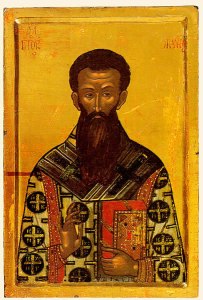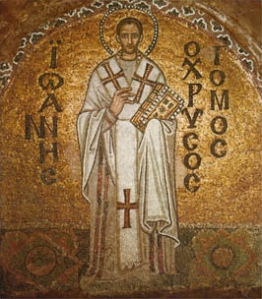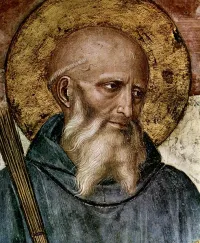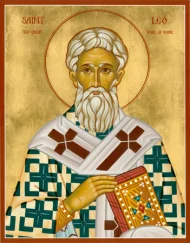 Since we have been counted worthy to celebrate the forefeast of the divine Transfiguration, from this then let us compose an instruction, discharging our duty in a few words.
Since we have been counted worthy to celebrate the forefeast of the divine Transfiguration, from this then let us compose an instruction, discharging our duty in a few words.
On the one hand, all the feasts of the Lord expound the mysteries of his sojourn in the flesh, such as that he was born, that he was baptized, that he was crucified, that he was buried, that he was raised on the third day, that he was taken up in glory; while the mystery of the Transfiguration hints at the restoration in the age to come.
For in the same way that ‘his face blazed like the sun, while his garments became white as light’ (Matt. 17:2), in the same way he will come from heaven like lightning, with power and great glory to judge the universe.
And as Peter, James and John were with him on the holy mountain, so the elect will be with him in the kingdom of heaven, enjoying his ineffable manifestation as God and inexpressible joy.
And who is adequate for all this? Who is worthy to attain that joy? Who else but one whose way of life is pure and undefiled? For since our God is pure, or rather the highest light, he comes to the pure, and as he has placed a pure soul in us, he will also ask it from us pure.
For since it has been made according to God’s image and likeness, that is to say as a figure of the divine beauty, it has also shared in that beauty.
And knowing this the poet speaks thus, ‘Lord, by your will you granted power to my beauty’ (Psalm 29:8), that is to say to the beauty of the soul, lest, having turned away towards the ugly passions of sin and become disfigured, it fall from God and his divine rewards.
Since therefore it is agreed that our soul should be like this, lovely and beautiful, and that we should give it back to God like a pledge on the last day, the day of resurrection, I beg and urge that we love this beauty and carefully guard this loveliness, not turning back to the fair things of the present age or to the beauties of flesh and blood.
They are not beauties, but idols of beauty; they are rather corruption and change. And this we can learn from the end of things, for one who today is outstandingly beautiful and fair of face is tomorrow cast into a tomb, stinking and abhorrent. So there is nothing fair and loveable but exemplary virtue, which should be our chief pursuit, my brothers.
Theodore the Studite: (759-826): Catechesis 20 trans. Archimandrite Ephrem Lash @ Anastasis.
















